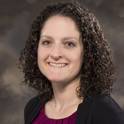The purpose of the present study was to investigate particular psychosocial predictors of obesity bias in prehealth professionals, which include the internalization of athletic and general body ideals, perceived media pressure and information, and achievement goal orientations. Exercise science undergraduate students (n = 242) filled out a survey containing questions of demographic characteristics, achievement goals, social-cultural attitudes toward appearance (using Sociocultural Attitudes Towards Appearance Questionnaire-3), and obesity bias measurements (using the antifat attitudes test and fat phobia scale). The results indicated that students were explicitly biased toward overweight and obese individuals, held had high task and ego goals, and had high internalization of an athletic body type ideal, as determined by mean scores being above the median values for each scale. Internalization of the athletic body type predicted obesity bias for fat phobia, weight control blame, and physical/romantic attractiveness. In conclusion, exercise science students may enter programs socialized from society and sport, and, potentially, these psychosocial attitudes and beliefs may have implications to working with future clients, especially for those of the general population and those whose body shape and size are different than themselves.
Available at: http://works.bepress.com/jody_langdon/86/
